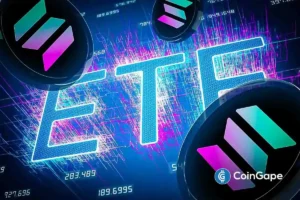In a forward-thinking move, the three largest Japanese banks—MUFG, SMBC, and Mizuho—are planning to revolutionize the way cross-border payments are made by utilizing a stablecoin-based system. This initiative, known as Project Pax, will eliminate the need for correspondent banks by incorporating blockchain technology. By connecting this system to SWIFT, users will still have the ability to initiate payments in a traditional manner using regular banking channels.
The introduction of Project Pax signifies a major shift in the way financial institutions handle international transactions. By leveraging stablecoins and blockchain technology, Japanese banks will be able to streamline the payment process, reduce fees, and increase efficiency. Eliminating the need for middlemen will also result in faster transfer times and greater transparency for all parties involved.
One of the key benefits of Project Pax is the potential cost savings for both the banks and their customers. By cutting out intermediary banks, transaction fees can be significantly reduced, leading to overall cost savings. Additionally, the use of stablecoins, which are pegged to a stable asset such as a national currency, can help mitigate the volatility often associated with cryptocurrencies, making cross-border payments more reliable and secure.
Another advantage of implementing a stablecoin-based system is the potential for increased financial inclusion. By using blockchain technology, Project Pax has the ability to reach underserved populations who may not have access to traditional banking services. This could open up new opportunities for individuals and businesses to participate in the global economy and access the benefits of digital payments.
Furthermore, the integration of blockchain technology into the cross-border payment system could lead to greater transparency and security. All transactions will be recorded on the blockchain, providing a secure and immutable record of every payment. This level of transparency can help prevent fraud and money laundering, making cross-border payments more secure for everyone involved.
Overall, the introduction of Project Pax by the largest Japanese banks represents a significant step forward in the evolution of cross-border payments. By leveraging stablecoins and blockchain technology, these financial institutions are not only streamlining the payment process but also increasing efficiency, reducing costs, and promoting financial inclusion. This innovative approach has the potential to revolutionize the way international transactions are conducted, setting a new standard for the future of banking.

















